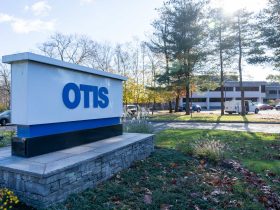At a Glance
In light of the recent CUNY findings implicating Professor Hoau-Yan Wang in “egregious misconduct,” Cassava Sciences (NASDAQ:SAVA) faces a daunting challenge that has repercussions far beyond just reputational damage. Building on my previous analysis, which concluded with a “Strong Sell” recommendation due to concerns over a “lack of rigorous data” and increased operational costs, new allegations cast significant doubts on the integrity of the scientific data related to simufilam, the company’s Phase 3 Alzheimer’s drug candidate. While Cassava’s balance sheet still appears strong, with a commendable liquidity position, these new revelations could serve as a critical stumbling block in simufilam’s path through regulatory hurdles. Notably, any setback in clinical progress could have an amplified adverse impact on future revenue streams and market valuation, transcending the current high liquidity and stable cash runway. Investors should be attuned to how these allegations influence forthcoming regulatory stances and clinical trial prospects, as these elements are now the fulcrum on which the company’s clinical and financial future balance.
Financial Highlights
Examining Cassava’s latest quarterly results ending June 30, 2023, a noticeable rise in R&D and G&A expenditures to $28.8M from last year’s $19.9M was observed, escalating the net loss to $26.4M from $19.3M, or a per-share loss of $0.63 from $0.48. Interest income of $2.2M partially mitigated the loss, but not substantially. A slight share dilution is seen with 41,793K shares used for net loss per share computation in 2023 versus 40,015K in 2022.
On the balance sheet, as of June 30, 2023, $168.4M in cash and equivalents are held, with total current assets at $174.5M against $17.9M in current liabilities, rendering a sturdy current ratio of around 9.75. The total liabilities are equal to the current liabilities, thus showcasing a commendable cash reserve compared to its debt level. Over the past six months, the net cash utilized in operations is $33.2M, reflecting a monthly burn rate of near $5.5M, which calculates to a cash runway of about 31.7 months.
Considering these figures, the imperative for Cassava to secure further financing within the ensuing year seems low. The firm’s solid liquidity, indicated by the current ratio, along with a manageable monthly burn rate, positions it well financially, reducing the immediacy for additional capital.
Market Sentiment
According to Seeking Alpha data and prior to yesterday’s news, Cassava commands a market cap of $773.51M, reflecting some level of market skepticism, especially given the controversies around simufilam. Growth prospects are uncertain, with FY2024 revenue estimates at $200M but a cloud of regulatory scrutiny is suspended. Momentum is negative, severely underperforming the SPY; SAVA is down 48.29% YoY compared to SPY’s +21.96%. Short interest is notably high at 36.03%, signaling significant doubt or arbitrage activity.
Institutional ownership sits at 28.43%, with New Positions counting 254,732 shares and Sold Out Positions at 194,827 shares. Notable holders include BlackRock with 2,746,908 shares and Vanguard with 2,249,659 shares. State Street has decreased its position by 106,864 shares. Insider activity is somewhat ambiguous but leans bullish. A total of 48,477 shares were bought and zero sold in the last three months, but a 12-month view shows net activity at 81,988, including 62,407 shares sold.
Integrity Questions Threaten Simufilam’s Future
The unfolding discourse around Cassava concerning simufilam, underscores a pervasive issue in the biotech arena where the sanctity of clinical data is crucial. This disputation reached a zenith around August 2021, intensifying with a Citizen Petition challenging the authenticity of simufilam’s data. Come July 2022, a U.S. Justice Department examination into potential research manipulation was underway, culminating in rescinded papers and apprehensions over others.
A notable 38% slump in SAVA’s stock post-market Thursday further stokes doubts regarding Cassava’s scientific integrity, particularly concerning simufilam. Fresh accusations from the City University of New York [CUNY] against Professor Hoau-Yan Wang of CUNY School of Medicine, a co-developer of simufilam, pinpoint “egregious misconduct” in 20 research papers. Although the committee could not substantiate these accusations due to the lack of raw data, they deduced misconduct from a pattern of data mismanagement and record-keeping by Dr. Wang, casting a spotlight on the partial accountability of Cassava’s Senior Vice President of Neuroscience, Lindsay Burns, co-author on many of Wang’s simufilam-related papers.
Investors are ensnared in a narrative laden with regulatory and reputational perils. These historical and ongoing accusations could obstruct simufilam’s trajectory through clinical trials and regulatory approvals, potentially impacting Cassava’s market valuation and eroding investor trust. If corroborated, these accusations could unleash a legal maelstrom for Cassava and beckon additional regulatory oversight, accentuating the broader diligence necessitated by biotech investors in evaluating the scientific and ethical foundations of the firms and assets they contemplate for investment.
The Novartis (NVS) scandal emerges as a harbinger here, wherein the FDA’s stance on data manipulation allegations prior to a drug’s approval underscored the severity of such issues. Post scandal, Novartis committed to notifying the FDA within five business days of any credible data integrity allegations concerning any pending drug applications, a pledge made after the FDA remarked that they would have postponed Zolgensma’s approval had they been privy to the data manipulation, and hinted at potential civil or criminal penalties for Novartis. This case accentuates the imperative of data integrity in the biotech sector, alluding to how the FDA might respond to analogous allegations against Cassava.
Though each case bears its unique intricacies, the FDA’s stringent response to Novartis illuminates the possible regulatory impediments that might await Cassava should the accusations be substantiated. As this sphere rapidly metamorphoses with expedited approvals, the emphasis on the caliber of data escalates, urging investors to remain abreast of regulatory evolutions, legal outcomes, and any further disclosures concerning Cassava’s research practices, which will considerably sway SAVA’s risk profile and its allure as an investment prospect.
My Analysis & Recommendation
The meticulous scrutiny of Cassava in the recent past has imparted cautionary tales in the biotech realm, underscoring the exigency of unimpeachable clinical data. As the firm navigates through a quagmire of reputational and regulatory vicissitudes, predominantly around simufilam, investors are at a crossroad. The forthcoming weeks and months mandate a vigilant eye on the evolving regulatory milieu, legal adjudications, and potential further revelations around Cassava’s research practices, as these determinants will significantly influence SAVA’s risk calculus and market valuation.
The allegations of misconduct, albeit not fully substantiated, against Dr. Wang and the consequential spotlight on Cassava’s Senior Vice President of Neuroscience, Lindsay Burns, demarcate a perilous territory. The historical and ongoing scrutiny might stymie simufilam’s progression through the regulatory pipelines, thereby impacting the firm’s financial outlook and market standing.
Investors seeking to mitigate risk could consider diversification, hedging through options, or even reallocating capital to entities with less regulatory uncertainty. Additionally, a close watch on institutional investor movements, notably those of BlackRock and Vanguard, might offer clues on market sentiment around SAVA. The high short interest underscores market skepticism, which coupled with the firm’s negative momentum, reinforces a cautious approach.
The investment strategy here aligns with a “Strong Sell” stance on SAVA, accentuated by a confluence of financial, clinical, market, and competitive analyses, alongside a thorough risk assessment. The skepticism surrounding Cassava’s scientific integrity, coupled with a precarious regulatory stance, underpins a scenario where caution could potentially shield from unforeseen value erosion. This scenario accentuates the broader diligence indispensable for biotech investors, stressing the significance of an informed, circumspect investment strategy amid a landscape rife with both opportunity and unforeseen vicissitudes.
Risks to Thesis
While my “Strong Sell” recommendation for Cassava is grounded in clinical prospects, market sentiment, and regulatory risks, several counterpoints could challenge this stance.
-
Breakthrough Potential: The unmet medical need for Alzheimer’s is massive, and any positive update on simufilam’s Phase 3 clinical trials could sharply reverse stock trends.
-
Regulatory Tailwinds: Although scrutiny is high, FDA policies can change, favoring expedited approvals for high-need areas like Alzheimer’s, boosting Cassava’s prospects.
-
Institutional Backing: Notable holders like BlackRock and Vanguard could indicate latent value or an impending turn in fortune that retail investors aren’t privy to.
-
Short Squeeze: With a high short interest, positive news can lead to a short squeeze, propelling the stock upward rapidly.
-
Insider Confidence: The bullish insider activity in the last quarter could signal internal optimism about upcoming milestones, contrary to market sentiment.
-
Strong Financials: The robust current ratio and cash runway undermine the urgency for additional capital, which could be a financial moat in a protracted battle over drug approvals.
Read the full article here












Leave a Reply